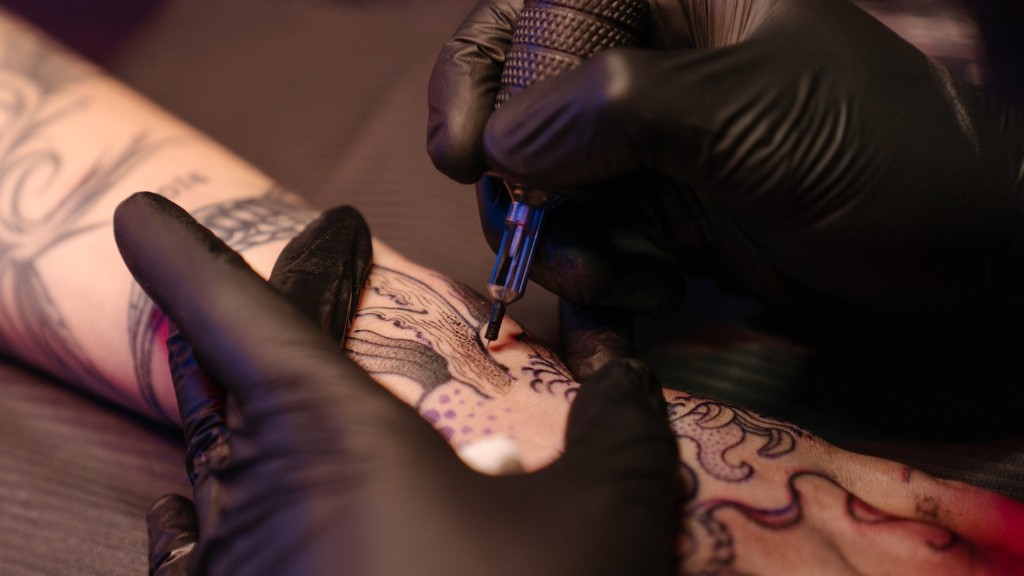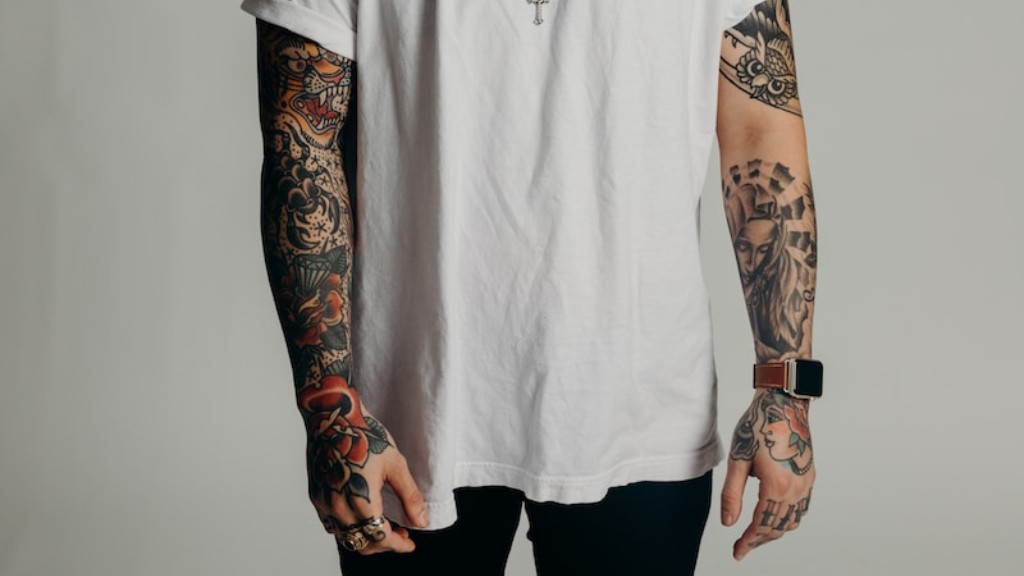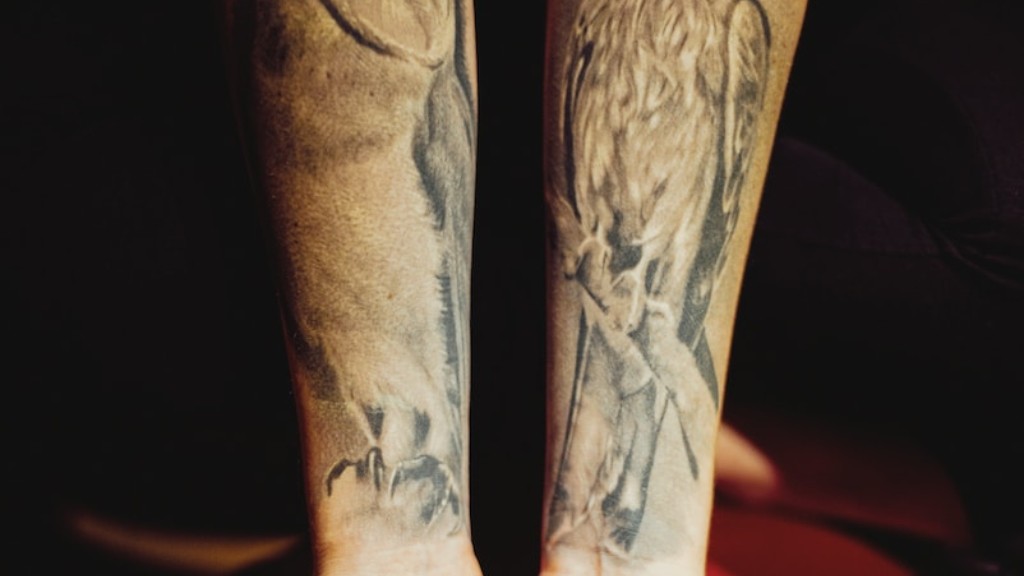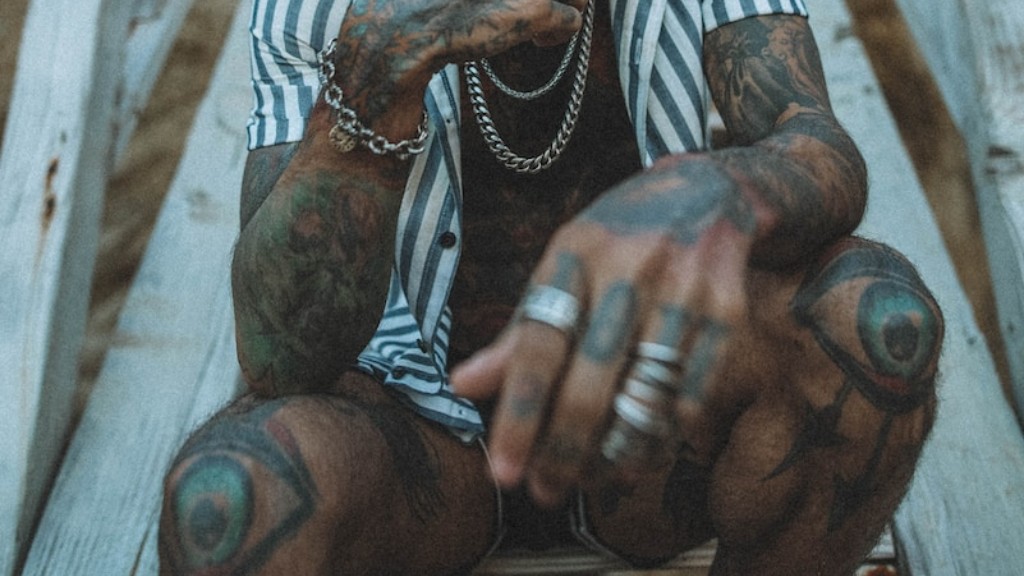Can I Shower After Getting a Tattoo?
Getting a tattoo is a thrilling and exhilarating experience. The moment the needle touches your skin, a surge of adrenaline rushes through your veins, and you can feel the ink become a part of you. However, as with any impactful decision, there are certain precautions that need to be taken after getting a tattoo. One common question that often arises is, “Can I shower after getting a tattoo?” Let’s delve into this topic and clear any doubts you may have.
The Importance of Keeping Your Tattoo Clean
Before addressing whether showering is safe after getting a tattoo, it’s crucial to understand the importance of keeping your new ink clean. Proper aftercare plays a significant role in the healing process and ultimately determines the longevity and vibrancy of your tattoo.
Your tattoo artist will advise you on the appropriate aftercare routine, but it typically involves keeping your tattoo clean and moisturized. While it’s essential not to submerge your tattoo in water for an extended period, showering can be part of a hygienic routine if done correctly.
1. Showering with a New Tattoo
After getting inked, your tattoo will be covered with a protective bandage or plastic wrap. It is necessary to keep this covering on for the time recommended by your tattoo artist. Once this initial period is over and it’s time to remove the bandage, you may feel a mixture of excitement and apprehension. Can you step into the shower and let the water run over your fresh tattoo?
Absolutely!
Showering is an integral part of maintaining hygiene, and you can enjoy the comfort of a refreshing shower even with a new tattoo. Just remember to:
• Keep it brief: Limit your time in the shower to a reasonable period, at least for the first few days. Five to ten minutes should be sufficient to clean your body without saturating your tattoo.
• Use lukewarm water: Hot water can cause your pores to open, creating a breeding ground for bacteria. Stick to lukewarm water to ensure thorough cleansing without compromising your tattoo’s healing process.
• Avoid excessive exposure: In addition to limiting your shower time, minimize the tattoo’s exposure to water by keeping it out of direct streams. Position your body in a way that allows the water to flow over the skin but not directly onto the tattoo.
• Be gentle: When lathering and rinsing, use your hands instead of abrasive materials like loofahs or harsh soaps that might irritate your tattoo. Treat it with care and respect, as you would any other fresh wound.
2. Drying Your Tattoo the Right Way
After showering, the way you dry your new tattoo is equally important. Dabbing rather than rubbing is the key to ensuring proper care.
Be a Gentle Pat-ter!
Imagine you’re delicately patting your tattoo dry with a fluffy cloud. That’s how gentle you should be when drying your fresh ink.
• Opt for a clean towel: Choose a soft, clean towel to dab away excess moisture. Ensure it’s free from lint or any other particles that could potentially become embedded in your tattoo.
• No rubbing allowed: Rubbing can cause irritation or even remove the healing skin cells around the tattooed area. Instead, gently pat the tattooed area until it’s dry, taking care not to apply too much pressure.
• Air dry whenever possible: If you have the luxury of time, air drying your tattoo is the gentlest option. Allow the remaining moisture to evaporate naturally without any intervention.
3. Moisturizing to Maintain Your Tattoo’s Brilliance
In addition to keeping your tattoo clean, moisturizing is an essential step in aftercare. It helps in preserving the vibrancy and suppleness of your ink.
• Follow your artist’s advice: Your tattoo artist will recommend the most suitable moisturizer for your tattoo. Apply it generously and as frequently as advised to keep your skin hydrated and your tattoo looking its best.
• Avoid petroleum-based products: While a moisturizer is essential, be cautious of using petroleum-based products. They can potentially suffocate your skin and hinder the healing process. Instead, opt for tattoo-specific lotions or natural alternatives recommended by your tattoo artist.
• Don’t overdo it: Applying too much moisturizer can clog your pores or lead to excessive moisture, which can be counterproductive. Moderation is key to striking the right balance and ensuring your tattoo heals properly.
The Healing Process
Now that we’ve established that showering is indeed possible after getting a tattoo let’s delve into what you can expect during the healing process. Tattoos, being puncture wounds, require several weeks to fully heal, and during this period, you may experience various stages.
1. Initial Healing Stage
Immediately after getting a tattoo, your body enters the initial healing stage. During this time, you may notice swelling, redness, and a bit of discomfort. These symptoms are entirely normal and are your body’s natural response to the tattooing process.
Your tattoo may also secrete plasma, forming light scabs or a thin, wet layer on the skin’s surface. Avoid picking or scratching these scabs, as it can lead to scarring or color loss. Allow them to naturally peel off as your tattoo heals.
2. Peeling and Flaking Stage
After the initial healing stage, your tattoo will enter the peeling and flaking stage. This phase is crucial, as it signifies that the healing process is in full swing.
You may observe that your tattooed skin starts to peel and flake, similar to a sunburn. Rest assured, this is part of the normal healing process, and it’s essential not to forcefully remove the peeling skin. Let it flake off naturally to avoid interrupting the healing process or damaging your tattooed skin.
3. Final Settling Stage
The final settling stage is when your tattoo completes the healing process and acclimatizes itself to your skin’s natural texture and appearance. During this phase, any minor inconsistencies or slight fading will be resolved, and your tattoo will regain its vibrancy and sharpness.
Remember, everyone’s healing process may vary, so be patient and give your tattoo ample time to settle to its full potential.
FAQs About Showering and Tattooing
1. Can I swim or bathe in a pool or the ocean after getting a tattoo?
While we have addressed showering, it’s also important to note that swimming in pools, oceans, or any other bodies of water should be avoided during the initial healing process. These environments can expose your tattoo to a higher risk of infection due to the presence of bacteria.
Your tattoo artist will provide specific guidelines on when it’s safe to resume swimming activities, typically after the peeling and flaking stage has completed and the skin has fully healed.
2. Can I use soap on my new tattoo?
Using a mild, fragrance-free soap is generally safe on a new tattoo. However, it’s advisable to check with your tattoo artist for soap recommendations that cater specifically to tattoo aftercare. These specialized soaps are often formulated to be gentle on healing skin and help maintain the brilliance of your tattoo.
3. Can I take hot showers after my tattoo heals?
Once your tattoo has fully healed, typically after several weeks, you can resume your regular shower routine, including indulging in hot showers. However, always listen to your body and avoid taking extremely hot showers that may cause unnecessary discomfort or irritation.
4. Can I use regular towels on my tattoo?
While regular towels are generally safe to use once your tattoo has healed, opting for softer, more delicate towels can help prevent unnecessary abrasion or irritation. Treat your tattooed skin gently, and it will reward you with long-lasting brilliance.
A Clean and Refreshing Experience with Your Tattoo
So, can you hop into the shower after getting a tattoo? The answer is a resounding yes! Showering is not only safe but also vital for maintaining proper hygiene during the tattoo healing process.
Remember, keeping your tattoo clean, drying it gently, and moisturizing it adequately are essential steps in ensuring optimal healing and longevity for your beautiful and meaningful ink.
Follow the guidelines provided by your tattoo artist for the best aftercare routine. And above all, trust the process. Your tattoo is a work of art that deserves to be cared for and admired for many years to come.





